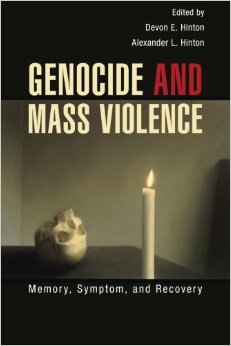Description
Book chapter written by 2008 DPDF Muslim Modernities Fellow Orkideh Behrouzan and Michael M. J. Fischer, featured in Genocide and Mass Violence: Memory, Symptom, and Recovery, edited by Devon Emerson Hinton and Alexander Laban Hinton:
What are the legacies of genocide and mass violence for individuals and the social worlds in which they live, and what are the local processes of recovery? Genocide and Mass Violence aims to examine, from a cross-cultural perspective, the effects of mass trauma on multiple levels of a group or society and the recovery processes and sources of resilience. How do particular individuals recall the trauma? How do ongoing reconciliation processes and collective representations of the trauma impact the group? How does the trauma persist in “symptoms”? How are the effects of trauma transmitted across generations in memories, rituals, symptoms, and interpersonal processes? What are local healing resources that aid recovery? To address these issues, this book brings into conversation psychological and medical anthropologists, psychiatrists, psychologists, and historians. The theoretical implications of the chapters are examined in detail using several analytic frameworks.

